“The Richest Man in Babylon” book is written by “George Samuel Clason,” a best-selling author and speaker. His book has been translated into many languages. This book teaches the importance of building a large and successful business.
George Samuel Clason was an American author. He is most often associated with his book The Richest Man in Babylon, first published in 1926 by George S. Clason.
He dispensed financial advice through a collection of parables set 8,000 years ago in ancient Babylon. Here are the most important takeaways and how to apply them to live your prosperous life.
The Richest Man in Babylon introduces the reader to the secrets of wealth, as used by the ancient civilizations of the world. It deals with finances, how to plan financially for your life, how to deal with your wealth, and how that affects your life.
Babylon is a city that has captured the attention of people throughout history. Despite lacking the natural resources that typically contribute to such prosperity, it was known for its vast wealth and influence.
Despite this, the city managed to become an empire of prosperity through the wisdom of its rulers. Babylon’s riches were entirely self-made, and its success did not result from chance.
Even today, the principles that governed money in Babylon’s heyday still apply, and these principles have remained constant over the past six thousand years.
Money is plentiful for those who understand the simple rules of its acquisition.
- Start the purse to fatten.
- Control the expenditure
- Make the gold multiple.
- Guard the treasures against loss.
- Make the dwelling a profitable investment.
- Insure a future income.
- Increase the ability to earn.
The book centers on personal achievement and how we can attain it. Success is a product of our capabilities and endeavors and can be achieved through adequate preparation.
Our actions are only as innovative as our thoughts, which are only as perceptive as our comprehension. Moreover, this book aims to provide valuable insights to those who aspire to financial prosperity, helping them acquire, retain, and grow their wealth.
Chapter 1. Historical sketch of Babylon
Babylon, a city steeped in history and myth, is renowned for its opulence and grandeur. Its name evokes images of untold riches and prosperity, with treasures of gold and jewels beyond measure.
Despite its seemingly barren surroundings, with no forests, mines, or natural trade routes, Babylon rose to become one of the wealthiest empires of its time.
Its success is a testament to man’s ingenuity and resourcefulness, as human hands developed all of the resources supporting the city.
While Babylon may no longer exist as a city, its legacy lives on. The ruins of the ancient city are located in Asia, in a valley beside the Euphrates river, which was once a populous and irrigated farming district. However, today the area is a barren, windswept wasteland.
Babylon’s history can be traced back 8,000 years to the Sumerians, the first to inhabit the region. They were highly educated and enlightened, credited with many firsts, including engineering, astronomy, mathematics, finance, and even written language.
Babylon was organized like a modern city, with streets, shops, and peddlers selling their wares throughout residential districts. Priests presided over magnificent temples, while the city’s inner enclosure housed the royal palaces. The Babylonians were skilled in the arts, including sculpture, painting, weaving, gold working, and producing metal weapons and agricultural tools. Their jewellery was especially renowned; many examples can still be seen in the world’s leading museums.
In addition to their artistic talents, the Babylonians were also shrewd financiers and traders. They are credited with inventing money for exchange, promissory notes, and written titles to property. Their financial and business acumen were critical to their success as a civilization.
Chapter 2. The man who desires gold
In the opening chapter of “The Richest Man in Babylon,” we are introduced to two friends, Bansir and Kobbi, who struggle to make ends meet despite their lifelong dedication to their respective trades. Bansir, a chariot maker, is found daydreaming by Kobbi, a lyre player, who jokingly asks for a loan since Bansir seems to have enough money to waste time daydreaming. Bansir shares with Kobbi a dream he had where he had all the money he could ever want, but upon waking up, he found himself in a dire financial situation with no savings or investments.
As the two men lament their situation, they wonder how some people escape their circumstances and attain great wealth. They had always believed that hard work alone was enough to transform their lives into leisurely ones, but now realize this is not always true.
During their conversation, they observe a group of enslaved people being driven to work, and they reflect on how easily they could have traded places with them. This observation leads them to discuss their old friend Arkad, the wealthiest man in Babylon. They wonder how Arkad achieved such great fortune while they have nothing to show for their hard work.
Finally, Bansir and Kobbi conclude that the only way to attain wealth and financial security is to learn from those who have already achieved it. They plan to seek advice from their friend Arkad, the wealthy merchant and embark on a journey to learn the secrets of financial success.
In summary, the opening chapter of “The Richest Man in Babylon” sets the stage for the rest of the book by introducing the struggles of Bansir and Kobbi and their quest for financial security. The chapter highlights the importance of seeking guidance from those who have already achieved financial success. It lays the foundation for the valuable lessons readers will learn in the following chapters.
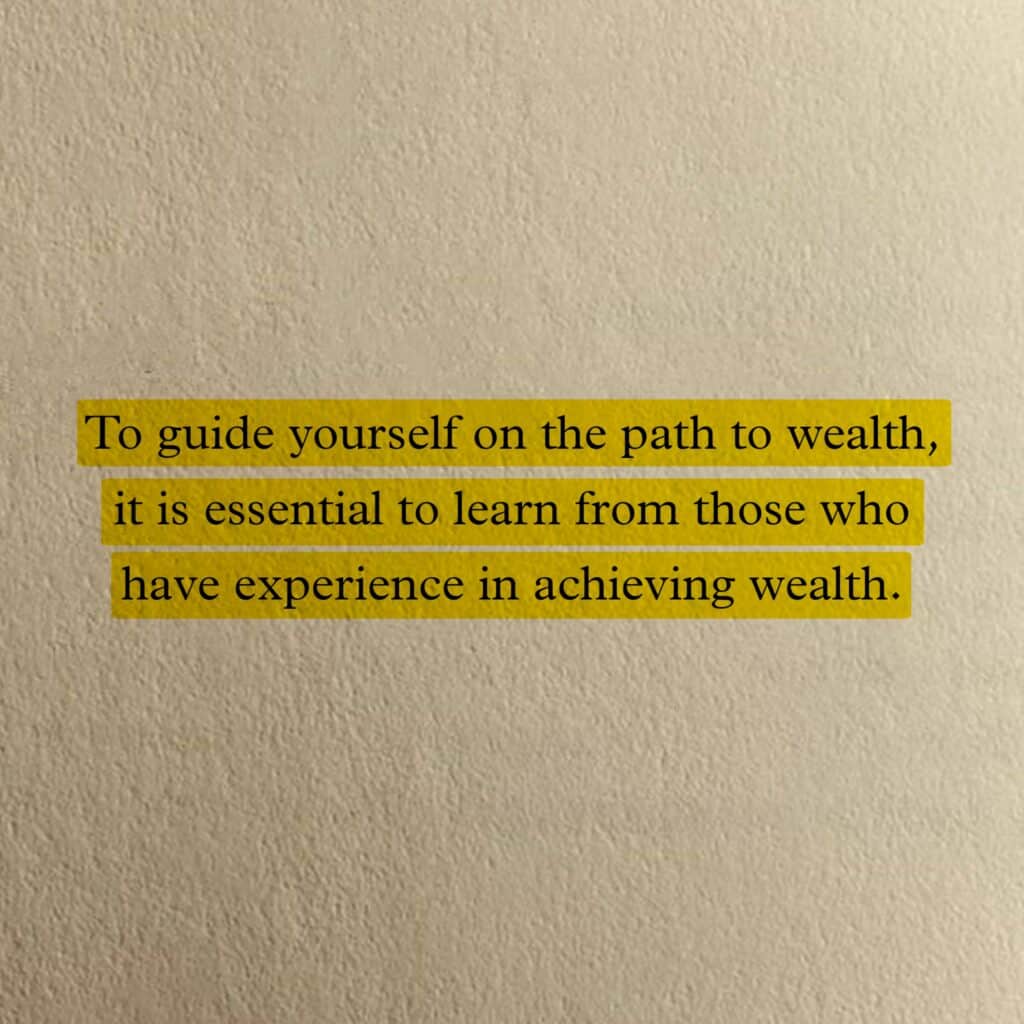
Lesson:
● To guide yourself on the path to wealth, it is essential to learn from those who have experience in achieving wealth.
● Main Idea While almost everyone concedes that money isn’t everything and that there are some things money cannot buy, it is also a fact that money is the medium by which worldly success is measured. From this perspective, wealth is a scorecard by which people measure themselves.
● Money represents success only through its ability to provide freedom to do things. It is not an end in and of itself – only a means to an end. The possession of sufficient amounts of capital makes possible the enjoyment of the very best services and goods the world has to offer.
● Many people have convinced themselves money has a way of avoiding them like the plague. This belief is usually based on their experience in consistently cashing short and scrambling to pay bills. In actuality, however, money is plentiful for anyone who understands the laws which govern its acquisition.
● To secure significant amounts of money, it is probably better to spend less time lamenting the bad luck of the past and more time focusing on the laws of capital acquisition.
● A far better approach is to believe that money can be attracted and governed by set laws and principles and to focus on learning and applying those laws to reap the rewards.
Chapter 3. The wealthiest man in Babylon
Arkad, a man who was once struggling financially like his friends Bansir and Kobbi, approached a money lender named Algamash for advice on becoming wealthy.
Algamash shared the first lesson, which was to pay oneself first. This means that a portion of all earnings should be kept for oneself before paying for any expenses or debts. Arkad learned that by paying himself a tenth of his earnings, he could live just as well on the remaining 90%.
As Arkad began accumulating savings, he sought advice from a bricklayer on investing in gemstones. However, he lost all his savings as a result. Algamash pointed out that Arkad should only seek advice from those with experience. This was the second lesson Arkad learned.
After some time, Algamash checked on Arkad and found that he had invested his savings on the advice of experienced businessmen and earned significant dividends.
When Arkad shared that he had used the earnings to purchase clothing for his wife and plan a feast, Algamash reminded him of the importance of compounding returns.
He advised Arkad to reinvest his earnings to produce even more returns, leading to incredible wealth and prosperity. This was the third lesson Arkad learned.
In summary, Arkad learned three lessons on his journey to becoming the wealthiest man in Babylon:
- Pay oneself first
- Seek advice only from those experienced,
- Take advantage of the compounding of returns.
These lessons taught him the value of saving, investing wisely, and letting his money work for him to create more incredible wealth over time.
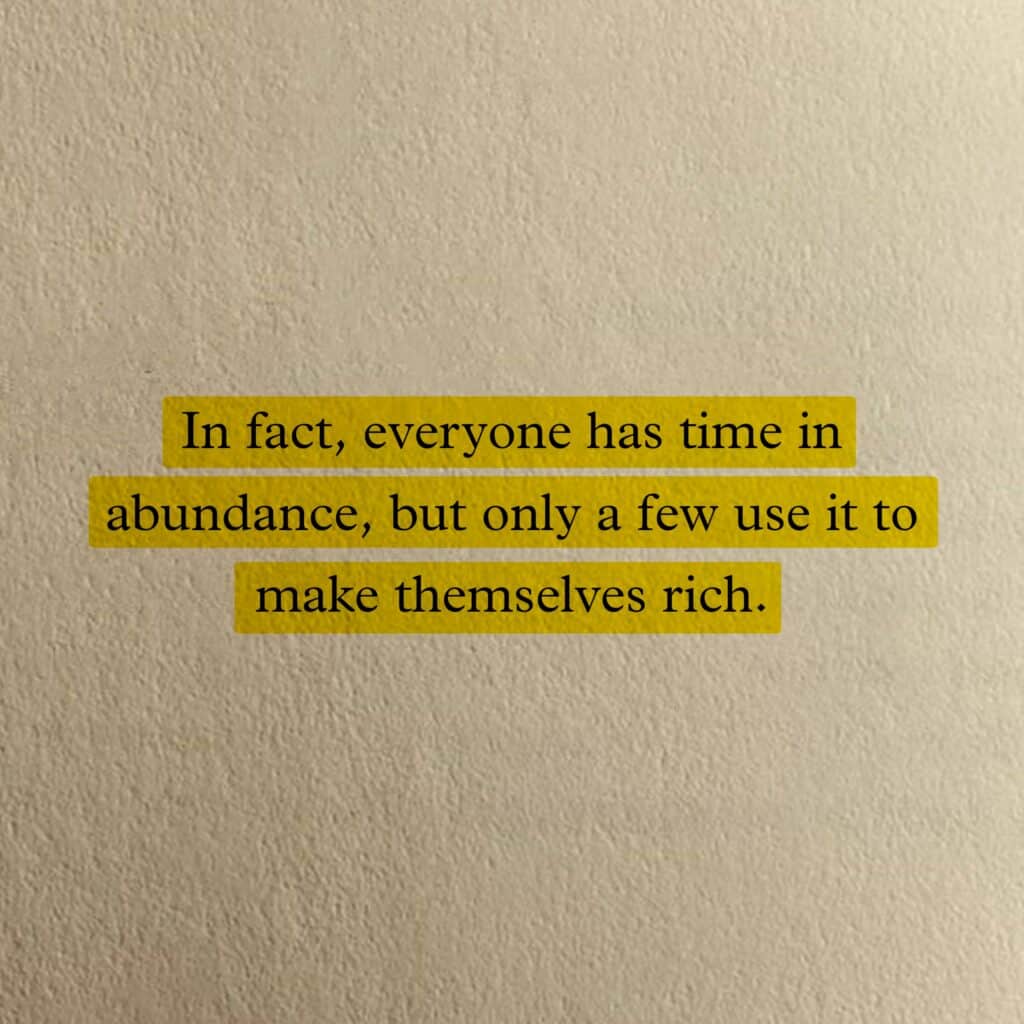
Time and study are essential to accumulate wealth and use it wisely. Many people have ample time, but only a few use it constructively to build wealth.
Instead, they engage in various activities that waste time. Learning is also crucial, and one can acquire knowledge in two ways: by studying specific subjects and discovering what is not commonly known about any topic.
There are several fundamental principles that one should follow to acquire wealth. First, live below one’s means and save at least a tenth of one’s income. Most people spend all they earn and live paycheck to paycheck.
However, by paying oneself first and living on what is left, one can gradually increase their savings. With a regular savings program, one can feel a sense of pride, self-control, and progress.
Over a lifetime, a considerable amount of money passes through one’s hands, and by saving just a small portion of it, one can accumulate a substantial pool of capital.
The book, “The Richest Man in Babylon,” reveals seven secrets or strategies for accumulating wealth:
- Start saving and accumulating wealth by spending only nine out of every ten coins you earn. This habit will allow your bag to fill quickly, and you will learn to live within your means while accumulating wealth.
- Control your expenses by distinguishing between your needs and wants. Plan your expenses based on 90% of your income to avoid overspending.
- Invest your money wisely to make it multiply. Your gold should work for you and generate income through wise investments like loans or other profitable opportunities.
- Protect your wealth by avoiding risky investments and seeking the advice of knowledgeable individuals. Ensure you invest in safe ventures that will not cause you to lose capital.

5. Consider investing in property to generate a passive income. Owning your own home and renting out other properties can help you accumulate wealth and inspire you to continue building your financial portfolio.
6. Ensure a stable future income for yourself and your family by investing in assets such as land and property.
7. Enhance your ability to earn more money by continually learning and expanding your knowledge. Seek to become wiser in all areas of life to increase your earning potential.
Chapter 4. Meet the Goddesses of good luck.
In this chapter, Arkad talks about the concept of luck and how everyone desires to have good fortune in their lives.
He begins by discussing the idea of gambling, acknowledging that while it is possible to win a large sum of money through this means, he questions whether this money truly brings good luck in the long run.
He points out that he has never met a wealthy person who gained their wealth solely through gambling, implying that there are better ways to attract good fortune.
Arkad believes that good luck is more likely to come to those who actively seek out and seize opportunities.
He suggests that those who hesitate and procrastinate are less likely to attract good luck, as the goddess of luck favors those willing to take risks and pursue opportunities.
He stresses the importance of investing at least 1/10 of one’s earnings and seizing any opportunities that come one’s way.
Overall, the main idea is that good luck is not just a matter of chance or divine favor but is influenced by one’s actions and willingness to pursue opportunities.
The supporting ideas emphasize that the desire for good luck is universal and that procrastination and hesitation can prevent one from attracting good fortune.
In contrast, those actively seeking opportunities and taking action are more likely to attract good luck and succeed in their endeavors.
Chapter 5. The gold lender from Babylon
After receiving fifty gold pieces in exchange for his spears, Rodan is uncertain how to use the money. He spends several days contemplating his options but remains indecisive. Then, his sister approaches him and requests a loan to help her husband become a merchant. Although Rodan considers this option, he hesitates to commit his funds without proper guidance. Therefore, he seeks the counsel of Mathon, the gold lender, to decide how best to invest his money.
Chapter 6. The walls of Babylon
Bazar was a warrior entrusted with guarding the passageway to Babylon. During the city’s siege, he was the first to report any news to the villagers and counseled them during the attack.
Bazar provided personalized consolation to each person who sought information from him. He remained vigilant day and night, observing the enemy’s attempts to breach the city’s defenses.
The city’s strong defenses prevailed after three weeks and five days, and the attackers were defeated.
Bazar used this victory to prove to the citizens who had sought his counsel that his advice had been correct. He emphasized that the city’s strength had enabled it to withstand the enemy’s armies.
Bazar’s message to the citizens was that they could not afford to be without adequate protection, highlighting the importance of solid defenses for their safety and security.

There are two valuable lessons to learn from this scenario. First, protection should be carefully planned and tailored to specific circumstances.
This can involve insurance, diversifying investments, and selecting appropriate risk levels in our financial lives.
The second lesson comes from the example of Old Bazar. As someone who had fought many battles and understood the strength of the city’s defenses, he reassured the citizens during a crisis.
Similarly, in our own lives, it can be beneficial to have a trusted mentor or advisor who can provide guidance and reassurance during difficult times. Keeping informed and seeking the support of experienced individuals can help alleviate anxiety and promote a sense of security.
Chapter 7. The camel trader from Babylon
This chapter in “The Richest Man in Babylon” introduces us to Tarkad, a young man struggling to make ends meet. He owes money to multiple people and cannot afford a simple meal.
Although he considers stealing food, he knows this is not the right way to solve his problems. He waits outside an inn, hoping to find someone to lend him a helping hand. Instead, he encounters Debaser, a wealthy camel trader to whom Tarkad owes a small sum.
Debaser demands repayment, but Tarkad explains that he has faced significant misfortune and cannot afford to repay him.
Debaser challenges Tarkad’s excuse but invites him to join him for a meal at the inn. During the meal, Debaser shares a story about his struggles with debt.
As a young man, Debaser had been enslaved due to his reckless spending and inability to repay his debts.
His wife eventually left him, and he turned to a life of robbery, resulting in his capture and enslavement again. However, his fortune changed when he was sold to a woman who recognized his potential and asked him a life-changing question: did he have the soul of a slave or a free man?
This question transformed Debaser, who became determined to face his debts, become respected and honored, and live a free life.
With the help of his benefactor, he escaped slavery and began a challenging journey back to his homeland.
Despite numerous obstacles and moments of doubt, he persevered and eventually paid off all of his debts, becoming a respected and honored man in his community.
The lesson from Debaser’s story is that self-pity and allowing circumstances to dictate one’s life are the traits of an enslaved person.
In contrast, taking control of one’s life and taking action when necessary are the hallmarks of a free person.
The key to success is embracing a free person’s soul, which requires courage, determination, and accountability. Only then can one achieve honour and respect in their community.
Chapter 8. The clay tablets from Babylon
The chapter in “The Richest Man in Babylon” revolves around discovering five Mesopotamia tablets containing the secret to wealth.
The tablets reveal the story of Dabasir, who returns to Babylon with a plan to repay his debts and start anew. The tablets’ lessons were so valuable that even after thousands of years, they continued to inspire and help people.
Alfred Shrewsbury, an archaeologist, writes to Professor Franklin Caldwell about his and his wife’s experience following the tablets’ lessons.
He mentions saving and building a surplus is more gratifying than spending recklessly. The professor learns about the clay tablet collection that the archaeologist delivered to St. Swithin’s College of Nottingham University.
These tablets are supposed to record Dabasir’s financial affairs and details how he worked his way out of debt.
Both Dabasir and the professor discover that living on 70% of their earnings is not as challenging as they had thought.
By following Dabasir’s formula, they start to pay off their debts and accumulate savings. Over time, they retire from all their obligations and learn to live within their means. These keys to financial success are invaluable lessons that continue to help people even after thousands of years.
The professor writes to the archaeologist about how the details on the clay tablets have opened his eyes to a new way of dealing with his financial affairs.
In a subsequent letter, he elaborates on how Dabasir’s formula has transformed his life. The letters showcase the timeless wisdom of the tablets, proving that financial success is achievable by anyone willing to learn and follow a disciplined approach to money management.
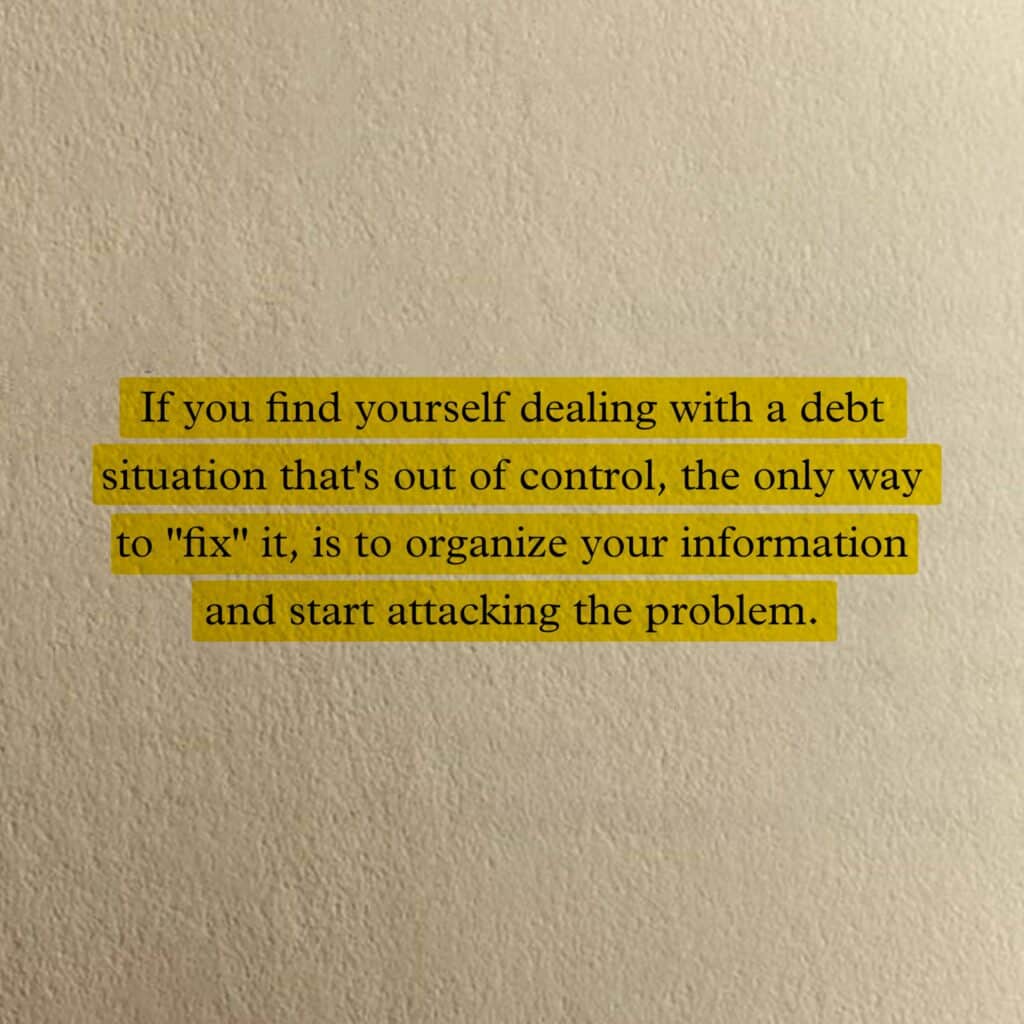
The critical lesson to fixing a debt situation is to organize your information and take action. Old Dabasir, as described in the clay tablets, followed a simple formula to overcome his debts.
He started by saving one-tenth of all his earnings and making a list of all his creditors and the amounts owed.
He then visited each creditor to explain his inability to pay off the debts and offered to service them with two-tenths of his earnings in proportion to the amount owed.
Although some creditors were unhappy with the payment plan, they eventually accepted it. Dabasir and his wife then used the remaining seven-tenths of their earnings for daily needs.
The success of this plan lies in its simplicity and the specific proportions used. To ensure success, it is crucial to write down all debts and communicate the payment plan to creditors.
This step helps in tracking progress and avoiding any misunderstandings regarding the size of the debt. Finally, discipline and sticking to the plan are crucial for overcoming debts.
Chapter 9. The luckiest man in Babylon
The story introduces Sharru Nada and Hadan Galu, who are traveling together. Shares with Hadan that he had once been enslaved but was fortunate enough to be sold to a baker, where he learned the trade and became happy. Sherry also tells Hadan that his grandfather had been enslaved but was close to buying his freedom.
In a fortunate turn of events, Arad, Hadan’s grandfather, was able to buy Sharru’s freedom after they met again.
This story inspires Hadan to believe that hard work is the key to his future success. The two men in the story faced financial difficulties but learned from each other and listened to successful people to apply the lessons.
Conclusion
This book focuses on personal success and how it results from our efforts and abilities, which require proper preparation. Often, we dream of becoming rich but fail to take the necessary actions to achieve it. To make our dreams come true, we should follow these essential tips:
- Saving at least 10% of our earnings and investing is crucial to becoming wealthy.
- Seeking advice from experts in the field can help us make better decisions.
- We should avoid spending our savings prematurely, as it is similar to cutting a tree before it bears fruit.
Just like a tree, wealth begins with a tiny seed in the form of savings. By nurturing this seed and allowing it to grow, we can eventually reap the fruits of our labour and enjoy a prosperous life.
The Richest Man in Babylon Book Review
My journey with “The Richest Man in Babylon” has been enlightening. It’s a treasure trove of financial wisdom imparted through engaging parables set in ancient Babylon. The tales are simple yet profound, turning the otherwise daunting subject of wealth accumulation into an enjoyable read.
Clason emphasizes the importance of saving, investing wisely, and curbing unnecessary expenditures. What resonated with me most were his lessons on seeking counsel from knowledgeable people before making significant investments and the value of continuous self-improvement and skill acquisition.
This book’s teachings are timeless, relevant, and surprisingly practical despite being based on ancient principles. It might not provide a step-by-step guide to financial freedom, but it lays the groundwork for developing a sound money mindset.
I believe “The Richest Man in Babylon” is a must-read for anyone wishing to understand the essence of personal finance and wealth creation. It’s more than just a book; it’s a mentor in print.
Contents

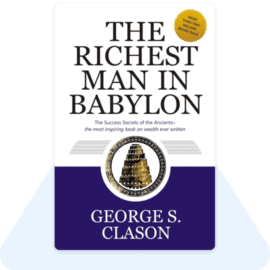
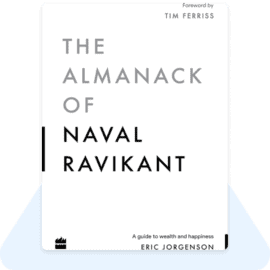
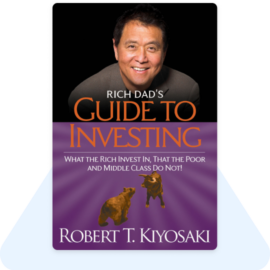

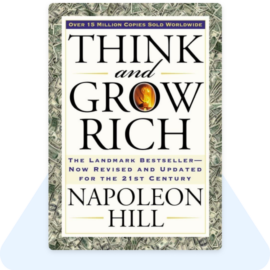

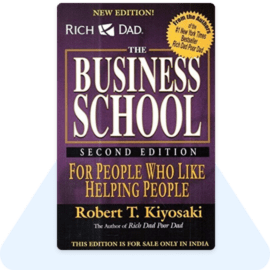

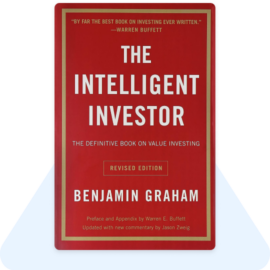
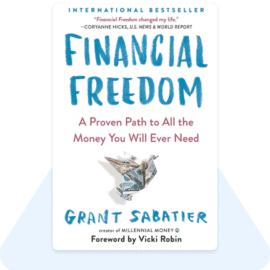
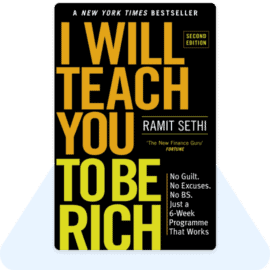
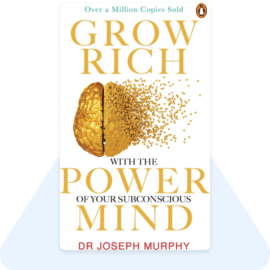

This wonderful point made me to admire for a moment.
The letters inscripted on the clay tablets were amazing. I like the tips given on the tables on how to deal with paying off the debts. And last but not the least, it is said that we should be determined with faith and with proper discipline in order to clear off all the debts. The idea of accumulating surplus is a brilliant idea and we should not cut the trees of savings before it’s fruits are ripened.
These are the points which I have learned from this book this morning.
3 Key Takeaways
(Anyone with a desire to accumulate wealth and put it to good use requires two things):
1. Time – In fact, everyone has time in abundance, but only a few use it to make themselves rich. Instead of looking for constructive, valuable ways to apply the resource of time, many people fill their lives with diverse activities that help them pass the time.
2. Study – Two kinds of learning are helpful to anyone seeking to generate wealth – learning about specific subjects and learning how to find out what is not commonly known about any topic. Both kinds of learning are helpful and valuable.
3. Proper preparation is the key to our success. Our acts can be no wiser than our thoughts.
Done day 18
Thanks for the wonderful book summary learnt lots of things.
Thank you so much ❤️
Good book ?
Thank you sir for this amazing summary….
Nice summary